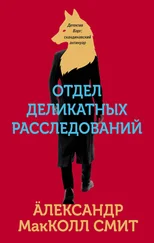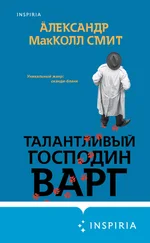It was mainly for this determination that Mma Ramotswe admired her friend. But it was also for her wisdom, which had shown itself time and time again. It was this wisdom that had helped her so much during Mr J. L. B. Matekoni’s illness or at those times when Mma Makutsi had been unsettled or demanding. It was this wisdom that had helped her in cases where she had found herself pursuing a line of enquiry that seemed to be getting nowhere; a question from Mma Potokwani, perhaps on the surface somewhat opaque, had turned her in a direction that had ultimately proved fruitful.
That afternoon, with the painful memory of Charlie’s outburst still fresh in her mind, she left the office early in order to go out to the Orphan Farm. She liked the drive, which took her along dusty back roads that twisted this way and that around people’s houses and yards, past small islands of scrubland that had survived encroachment and were now claimed by itinerant herds of cattle. The cattle picked their way through thorn and acacia scrub, making a living somehow, prized by somebody for whom they represented the hard-earned savings of a lifetime. She sometimes slowed down to look at these cattle and judge the state they were in. Her late father had always done this; he could not drive past cattle without stopping and commenting on how well or how badly they were doing. He might say something about the cattle’s ancestors, if he recognised some handed-down characteristic that only a cattle man would know about: a way of holding the head; unusual markings; a special shape to the hump of a Brahmin bull. These meant nothing to those who did not know cattle, but were there to be read by those who did.
Now, as she made her way out to see Mma Potokwani, she stopped the van for a few moments to gaze at a cow that was standing under an acacia tree chewing the cud, her calf at her side. She imagined that her father was in the van beside her, and she could hear his voice as clearly as if he had been there. The cow was thin, he said, but would put on weight when the rains came and there was grass again, rather than only hardened earth; and after that her calf would grow as it should and the owner would be content. And then he said something about the place where the rain-bearing clouds came from, and she did not hear it properly because the voices of late people were hard to make out sometimes and there were many of them wanting to talk to us, and the sound became like the sound of a swarm of bees, or the chatter of birds in the high branches of a mopani tree; not like words at all, but reminders nonetheless of how we shared the world with people who were no longer with us, but were in that other Botswana that cannot be seen, to which each of us would go in due course, when our time came, as it surely would.
She left the cow and calf; they would be there, she imagined, in exactly the same place when she came back; there was no reason for them to move, just as there was often no reason for any of us to move, if we only thought about it. We could stand under trees, too, and look about us, and think about things. Not only could we do that, she thought, but we should . It was called meditation – she knew that – but she did not consider that we needed a special word for standing under a tree and thinking. People had been doing that well before meditation was invented. There were many things, she reflected, which we had been doing as long as anybody could remember and which had suddenly been taken up by fashionable enthusiasts and given an unnecessary new name. Mma Ramotswe had been invited to a Pilates class in a local church hall; it would be of great benefit to her, she had been told. But when she had gone to the class and seen what Pilates was, she had realised that she did not need to pay fifty pula a session to do the things that she had been doing for years anyway: lifting and pushing and stretching your muscles was nothing new; she did all of these things when she worked in her garden, and Mr J. L. B. Matekoni did Pilates, too, when he fiddled about under cars or struggled to mend a bit of old machinery at the Orphan Farm. In his case he was doing what might be called Pilates with Cake , as Mma Potokwani unashamedly bribed him to undertake the repairs for which she would otherwise have to pay.
Mma Ramotswe was now only minutes away from the gate that marked the entrance to the Orphan Farm. The farmlands were protected by a cattle grid that clattered in protest as she drove over it. And then there was the painted sign that said: Please remember that children live here – drive carefully . She had often thought that she might erect such a sign on Zebra Drive, warning drivers that people lived there and asking them to drive with consideration. But drivers would pay no attention, she feared, because they always seemed to be in such a hurry. There was no real reason to be in a hurry, when one came to think about it; important people, she had noticed, did not walk fast, but seemed to amble, and if they were not in a hurry when they had all those things to do and to worry about, then why should the rest of us imagine that we needed to be in any sort of rush?
She drew up beside the tree under which she always parked when she came to see Mma Potokwani, and sounded her horn, as she always did to notify the matron of her arrival. This worked, and Mma Potokwani’s window was flung open and a hand emerged, beckoning her in.
By the time Mma Ramotswe had reached the veranda of Mma Potokwani’s office, the matron had appeared at the doorway to welcome her. ‘So, Mma Ramotswe, you always come at a convenient time. As it happens, I have just put on the kettle and I baked a cake this very morning.’
‘You know my weakness,’ said Mma Ramotswe. ‘You know that I cannot resist your fruit cake.’
‘And your husband is as bad,’ said Mma Potokwani with a smile. ‘Mr J. L. B. Matekoni will fix anything if you offer him a piece of fruit cake. My husband can no longer be bribed with such offers. I cannot make him do things any more.’
Mma Ramotswe laughed. ‘It is a very bad situation when we can no longer get our husbands to do what we want them to do.’ She paused, and became serious. ‘Of course there are also those times when they do something that you don’t want them to do. Those times are also difficult.’
Mma Potokwani knew immediately that this was what Mma Ramotswe had come to talk about. Her friend did not always visit her for a specific reason, but when she did, it did not take Mma Potokwani long to work out what it was.
‘So,’ began Mma Potokwani. She stared at Mma Ramotswe with astute eyes. ‘So Mr J. L. B. Matekoni has done something – am I right, Mma?’
Mma Ramotswe did not beat about the bush. ‘He’s fired Charlie.’
This was unexpected news for Mma Potokwani. The two apprentices had been at the garage for so long now that it was difficult to imagine how it would be without them.
‘Charlie’s the good-looking one. Isn’t he?’ she asked. ‘The one who’s always getting into trouble.’
‘That’s him,’ said Mma Ramotswe. ‘The other one is Fanwell. He’s completed his apprenticeship exams now and so he’s a sort of assistant mechanic – something like that. Charlie never wrote his exams, He’s still an apprentice – or was, should I say.’
Mma Potokwani looked thoughtful. ‘He’s fired him for a good reason, I suppose? These days you can’t get rid of people just like that, you know. There is one of the cooks I’d dearly love to replace – a very lazy woman – but I know that if I tried to do that there would be letters from lawyers, and a tribunal, and money to pay and so on. Everybody would say: that Mma Potokwani goes round firing people left, right and centre. You know how people are, Mma.’
Читать дальше

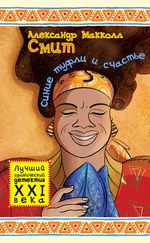

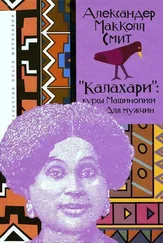
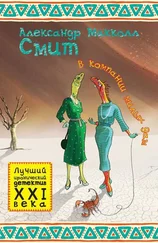
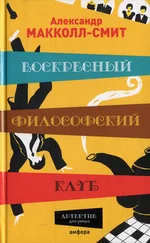

![Александр Макколл Смит - Отдел деликатных расследований [litres]](/books/397661/aleksandr-makkoll-smit-otdel-delikatnyh-rassledova-thumb.webp)
